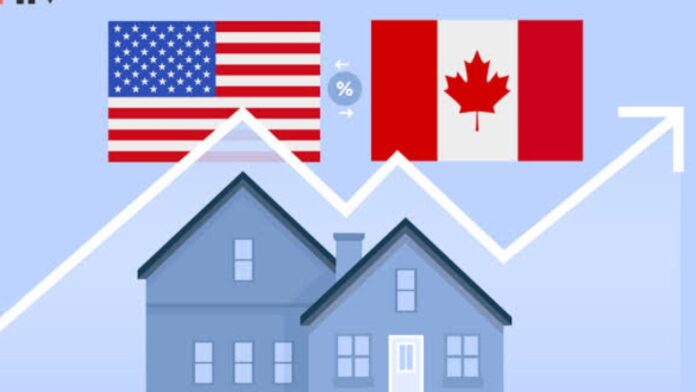Navigating Mortgages, Finance, and Legal Expertise in the United States and Canada
The United States and Canada, two neighboring nations with distinct economic landscapes, offer unique opportunities and challenges for individuals navigating mortgage systems, finance strategies, and legal processes. Whether you’re a first-time homebuyer, a seasoned investor, or someone seeking the guidance of the best lawyer, understanding the nuances of these countries’ frameworks is critical. This article explores key aspects of mortgage markets, financial considerations, and the role of legal professionals in both nations, with FAQs to address common queries.
Mortgage Systems in the United States and Canada

1. United States: A Dynamic Mortgage Market
The mortgage industry in the United States is one of the largest and most diverse globally, offering products tailored to varying financial needs.
- Types of Mortgages:
- Conventional Loans: These require a 20% down payment to avoid private mortgage insurance (PMI).
- Government-Backed Loans: FHA loans (3.5% down payment), VA loans (0% down for veterans), and USDA loans (rural development).
- Adjustable-Rate Mortgages (ARMs): Interest rates adjust periodically, ideal for short-term homeowners.
- Key Trends:
- Rising interest rates in 2023 have cooled housing demand, but programs like FHA loans remain popular for first-time buyers.
- Credit scores heavily influence eligibility, with 620+ typically required for conventional loans.
- Finance Considerations:
- The Federal Reserve’s monetary policy impacts mortgage rates.
- Debt-to-income (DTI) ratios above 43% may hinder loan approval.
2. Canada: A Regulated Mortgage Environment
Canada’s mortgage system emphasizes stability, with stricter regulations to curb housing market risks.
- Types of Mortgages:
- High-Ratio Mortgages: For buyers with less than 20% down payment, requiring CMHC insurance.
- Fixed vs. Variable Rates: Fixed rates offer predictability, while variable rates fluctuate with the Bank of Canada’s prime rate.
- Key Trends:
- The 2023 “stress test” requires borrowers to qualify at rates 2% above their contract rate.
- Average home prices in cities like Toronto and Vancouver remain high, prompting government incentives for first-time buyers.
- Finance Considerations:
- The Bank of Canada’s rate hikes aim to combat inflation, directly affecting variable-rate mortgage holders.
- Credit scores of 680+ are preferred by lenders.
The Role of Finance in Homeownership
United States: Flexibility and Risk
The finance landscape in the United Statesencourages homeownership through tax deductions (e.g., mortgage interest) and refinancing options. However, subprime lending practices have historically led to crises, underscoring the need for cautious borrowing.
- Refinancing: Homeowners often refinance to secure lower rates or tap into equity.
- Investment Opportunities: Real estate investment trusts (REITs) and rental properties are popular wealth-building tools.
Canada: Stability and Caution
Canada prioritizes financial prudence, with measures like the stress test ensuring borrowers can withstand rate hikes.
- Government Programs: The First-Time Home Buyer Incentive (FTHBI) shares equity with the government to reduce monthly payments.
- Economic Factors: Global oil prices and immigration-driven demand influence housing markets in provinces like Alberta and Ontario.
Why You Need the Best Lawyer

Legal expertise is indispensable in both countries, though their roles differ.
United States: Real Estate Attorneys
In the United States, the best lawyer for mortgage transactions ensures:
- Title searches to confirm property ownership.
- Compliance with state-specific closing laws.
- Dispute resolution in cases of fraud or contract breaches.
Tip: States like New York and Florida mandate attorney involvement in closings.
Canada: Real Estate Lawyers
In Canada, a best lawyer handles:
- Title transfers and land registration.
- Reviewing mortgage agreements for regulatory compliance.
- Addressing tax implications, including GST/HST on new builds.
Tip: Lawyers in Canada also oversee the disbursement of mortgage funds to sellers.
FAQs: Mortgages, Finance, and Legal Needs in the US and Canada
1. Do I need a lawyer for a mortgage in Canada?
Yes. Unlike some U.S. states, Canada requires a best lawyer to finalize property transfers and ensure legal compliance.
2. What’s the minimum down payment in the United States?
As low as 3% for conventional loans (with PMI) or 3.5% for FHA loans.
3. How does the stress test work in Canada?
Borrowers must qualify at the higher of either 5.25% or their contract rate + 2%.
4. Can I refinance my mortgage in both countries?
Yes, but terms vary. The United States offers cash-out refinancing, while Canada limits refinancing to 80% of a home’s value.
5. Are credit score requirements stricter in Canada?
Generally, yes. Scores below 600 face significant hurdles, whereas some U.S. lenders accept scores as low as 580 for FHA loans.
6. What tax benefits exist for homeowners?
The United States allows mortgage interest deductions; Canada offers no direct deduction but provides tax-free savings accounts (TFSAs) for down payments.
7. How do I choose the best lawyer?
Look for experience in real estate law, client reviews, and transparent fee structures.
8. Are variable-rate mortgages risky?
In rising rate environments (e.g., 2023), they can increase monthly payments. Fixed rates offer stability.
Conclusion
Navigating mortgage systems and finance strategies in the United States and Canada requires awareness of regulatory differences, economic trends, and legal requirements. Partnering with the best lawyer ensures compliance and protects your investment. Whether you’re exploring suburban homes in Texas or condos in Vancouver, informed decisions pave the way for successful homeownership.
By understanding these frameworks, buyers and investors can confidently tackle challenges and seize opportunities in two of North America’s most dynamic markets.
Read More: Best Meal Prep Strategies for Fast Weight Loss Success
Finance and Business blog: News9 india
